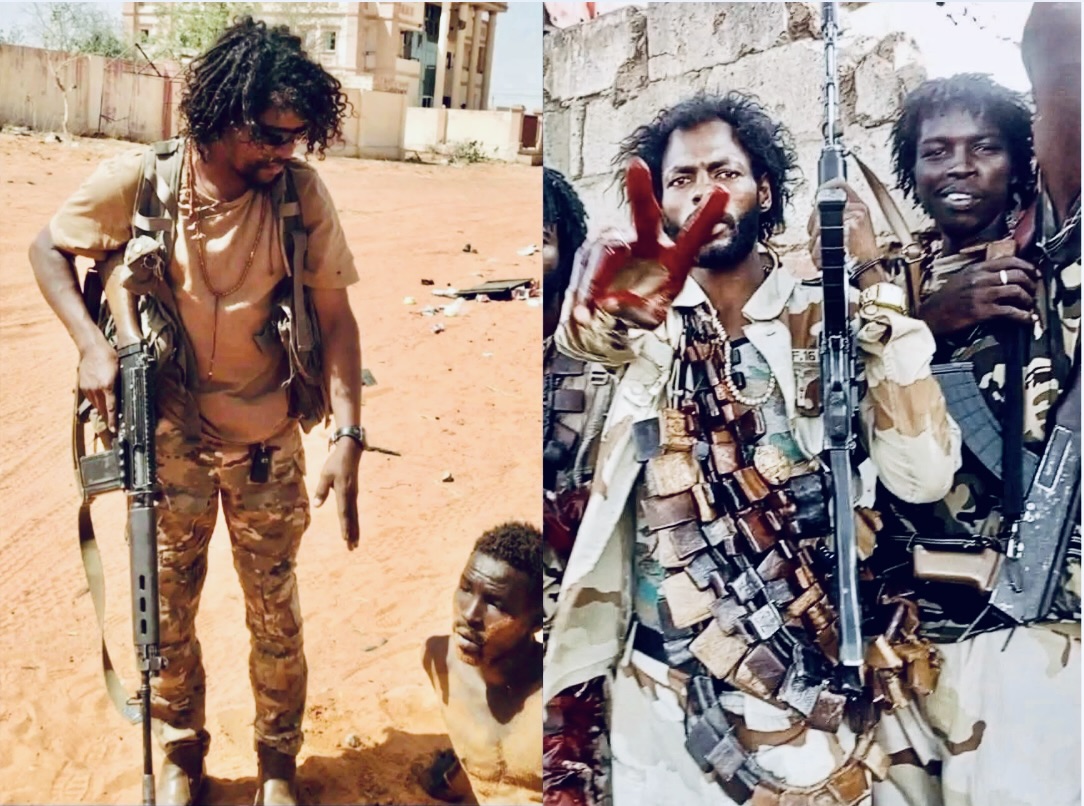RSF and the making of Abu Lulu
10 November 2025
Few names drew attention in Sudan before October 26, 2025, like Fateh Abdullah Idris, more commonly known as “Abu Lulu”. Before the paramilitary Rapid Support Forces’ (RSF) capture of El Fasher, he was relatively unknown outside the circles of Darfur militias and paramilitary forces. Yet after the city fell, footage emerged of him executing civilians and his notoriety spread worldwide.
Colleagues describe Abu Lulu as an ordinary fighter before the rapid escalation in Darfur. “He was just a regular soldier,” one colleague told Ayin, choosing anonymity. “He moved between different combat fronts from Khartoum to Darfur before the Sudanese Armed Forces (SAF) regained control of Khartoum last year.”
Sudan’s paramilitary history closely influences Abu Lulu’s trajectory. He was initially part of the Border Guard, a militia created under former President Omer al-Bashir’s regime to confront rebel movements and illegal immigration in Darfur. Witnesses and former members confirmed that these units participated in multiple massacres in the region. Later, these forces emerged within the RSF in 2017, when Bashir sought to consolidate paramilitary power in Darfur and beyond.
“He was with us in the border guard,” a former colleague told Ayin, “before joining the RSF. These units were heavily armed and tasked with suppressing opposition in Darfur. Abu Lulu proved himself on the battlefield quickly.”
Over time, Abu Lulu gained recognition beyond his unit. By the time RSF troops entered El Fasher, he had transitioned from a frontline fighter to a feared commander. Viral videos documented his brutal actions, including the execution of civilians trying to escape the city. In one clip, a man begged Abu Lulu for mercy, insisting he was a civilian, yet he was shot dead – an act that solidified Abu Lulu’s infamy.
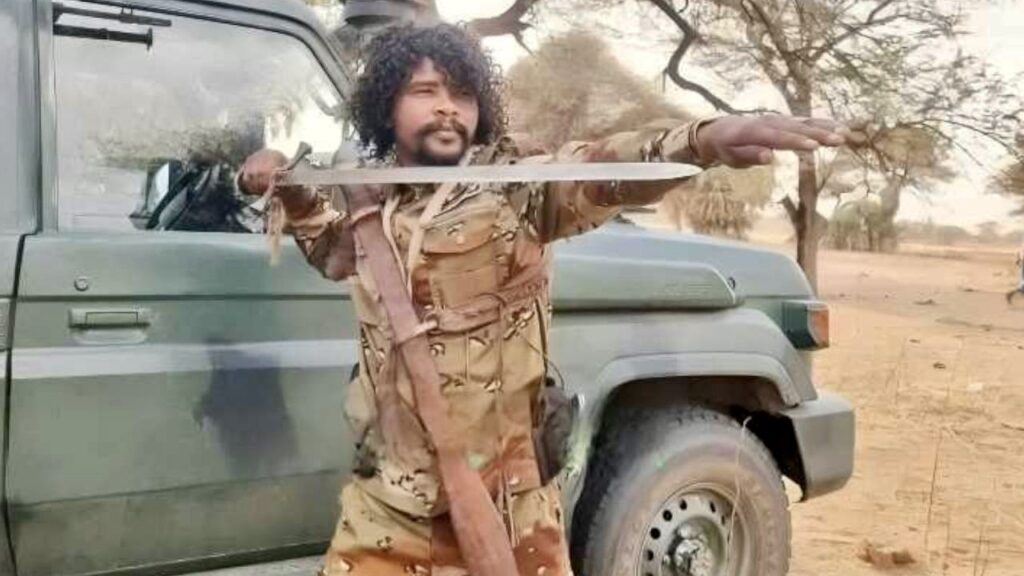
RSF denials
Following the release of these videos, multiple RSF sources sought to distance the force from Abu Lulu. “He does not belong to the RSF,” a senior RSF officer told Ayin. “He leads a group fighting alongside us and he will be held accountable for his actions.”
RSF spokesperson al-Fateh al-Qurashi echoed this position, denying Abu Lulu’s inclusion in the RSF chain of command. RSF leader Mohamed Hamdan Dagalo, known as Hemeti, acknowledged the “individual atrocities” carried out by RSF units and announced the formation of an investigative committee, promising that “there will be accountability.”
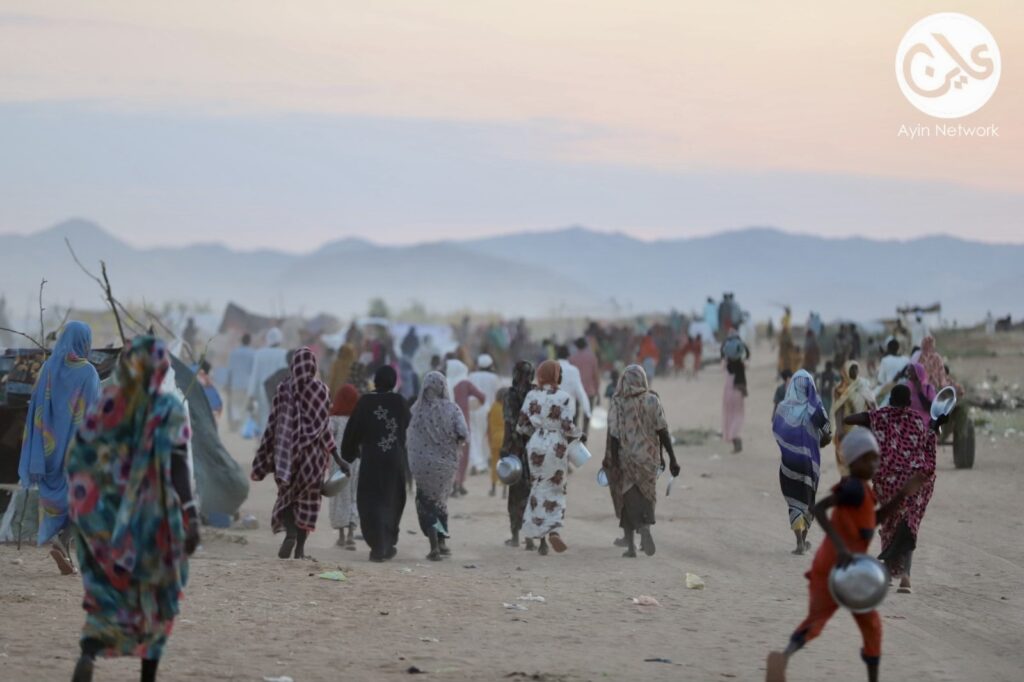
The RSF command even claimed to have arrested Abu Lulu for committing war crimes. Photos of Abu Lulu in handcuffs, with a smirk on his face, started to appear on social media earlier this month. But human rights activists and political analysts doubt their authenticity.
“This is just a publicity stunt to deflect international condemnation,” says political analyst and researcher Mohamed Ibrahim. “Before the [RSF] attack on El Fasher, the RSF’s second-in-command, Abdel-Rahim Dagalo, was caught on film instructing all the RSF soldiers to leave no one alive, to kill everyone,” Ibrahim added. “Many suspect Abu Lulu was just a diversion to deflect attention from this circulated clip – clearly showing that RSF atrocities are sanctioned from the top.”
Human rights analysts and observers argue that the RSF has frequently used such distancing tactics to protect its image while maintaining operational relationships with allied local militias. Such behaviour allows paramilitaries to claim accountability while profiting from the actions of commanders, like Abu Lulu, who operate with considerable autonomy on the ground.
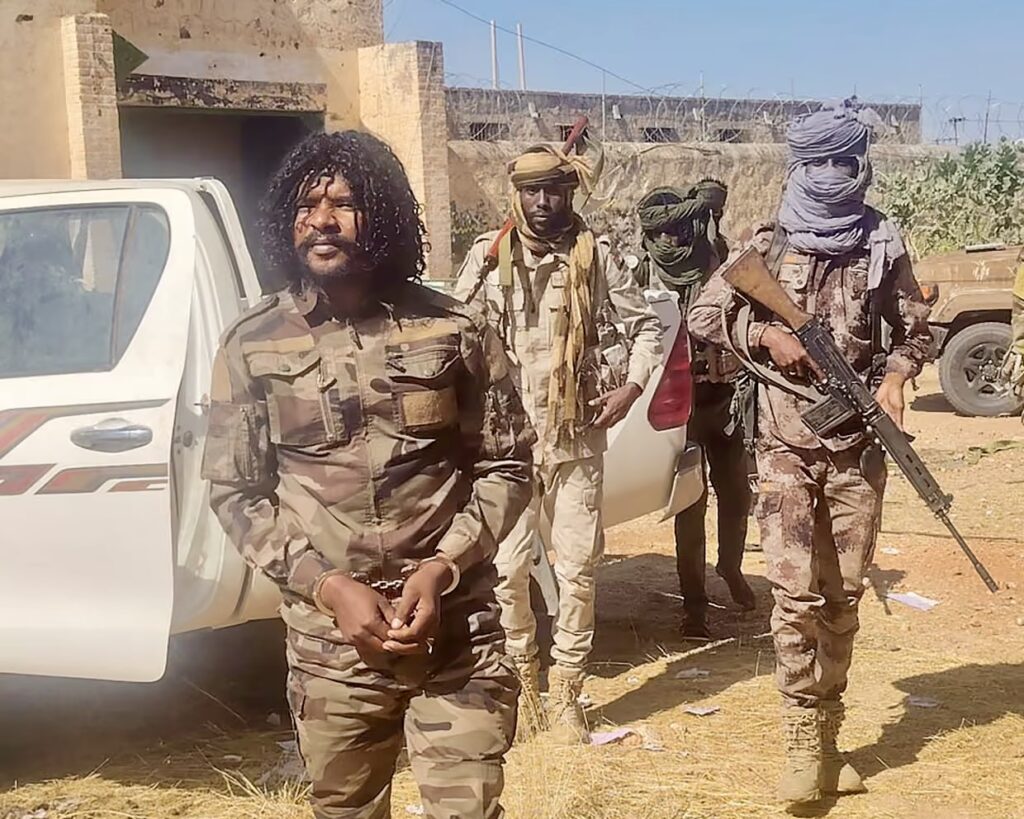
El Fasher under Abu Lulu’s shadow
Extreme violence marked the RSF’s takeover of El Fasher. Residents reported that Abu Lulu’s group operated with a level of autonomy, patrolling the city’s entrances and systematically executing civilians attempting to flee. The footage of his actions quickly circulated on social media, portraying him as one of the most feared figures in the city.
“The city fell, and he became a name everyone feared,” said Ahmed*, a survivor speaking with Ayin over the phone from Tawila. “He would stand at checkpoints, shooting anyone trying to leave. It was terrifying.”
Eyewitnesses confirm that while Abu Lulu acted alongside RSF-affiliated forces, he maintained operational control of his group, creating a complex chain of command that blurred the distinction between the RSF and allied militias. This approach is consistent with longstanding RSF strategies: by allowing field commanders to act semi-independently, the RSF can achieve military objectives while shielding its leadership from direct accountability.
The El Fasher operation reflects broader patterns in Sudan’s ongoing war, where paramilitary units and allied militias operate with little oversight and civilians bear the brunt of the violence. Abu Lulu’s actions underscore the human cost of such networks, which have evolved over decades from government-backed militias into fully operational paramilitary forces with significant regional and international backers.
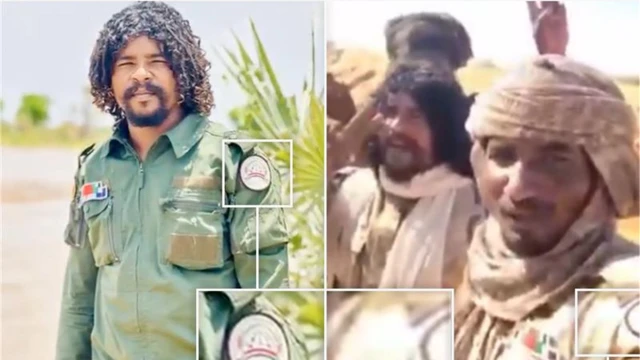
A history of impunity
The RSF itself traces its origins to the Janjaweed, Arab tribal militias mobilised by the Sudanese government during the Darfur war in the early 2000s. The militias were accused of widespread atrocities, including massacres, ethnic cleansing and sexual violence. In 2013, Bashir formally restructured the Janjaweed under the RSF banner and appointed Hemeti as the commander.
The RSF became a semi-autonomous power bloc despite being formally a part of Sudan’s military hierarchy. It amassed significant economic resources through gold mining operations and mercenary contacts abroad. When the RSF refused integration into the Sudan Armed Forces (SAF) on the SAF’s proposed timeline, the resulting brutal conflict allowed the RSF to leverage its deep field networks and combat experience to seize strategic areas in Darfur and Kordofan. The RSF often used the same tactics employed in Darfur over the past two decades to target civilians, particularly those suspected of allegiance to opposing forces.
While the RSF have promised investigations and potential accountability for Abu Lulu, the history of impunity in Darfur and elsewhere raises doubts. For survivors and witnesses, the arrest or reprimand of one commander offers little assurance that systemic abuses will cease.
As the war continues, Abu Lulu remains a symbol of the dangers posed by semi-autonomous militias embedded within larger paramilitary networks. His trajectory — from a relatively unknown Border Guard fighter to a feared executioner in El Fasher — reflects the ongoing challenges Sudan faces in confronting wartime atrocities and establishing meaningful accountability.
* The name has been changed to protect the source’s identity


